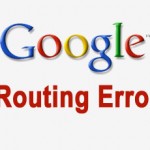 New York — Get set for an avalanche of brand names in Google keyword ads. The search titan, which so far has banned the use of trademarked brand terms in ad text on its search-results page, now plans on lifting restrictions on the use of trademarked keyword terms, except when permitted by the brand itself to AdWords advertisers in June, according to Michael Orey of Business Week.
New York — Get set for an avalanche of brand names in Google keyword ads. The search titan, which so far has banned the use of trademarked brand terms in ad text on its search-results page, now plans on lifting restrictions on the use of trademarked keyword terms, except when permitted by the brand itself to AdWords advertisers in June, according to Michael Orey of Business Week.
The move could increase friction with brand owners — in addition to increasing the keyword prices for Blue-Chip Brands.
Beginning this June, Google will empower advertiser’s with the ability to bid on the brand names of their competitors worldwide in more than 200 countries, a move that will heat up the AdWords listings throughout Google and lead to head to head battles in the SERPs over branded product, service and company names,
The plan to do so illustrates Google’s confidence that trademark bidding is not a violation of trademark laws — apparently anywhere, despite a class action lawsuit filed in Texas early this week.
The new policy will let advertisers place trademarked terms directly in the copy of text advertisements that run in the US starting next month, the company announced in a blog post on Thursday.
Google has also released a list of the countries and regions where they will not investigate the use of trademarked keywords.
Beginning June 4, marketers in about 200 countries will be authorized to purchase rival trademarks as keywords to trigger display of “sponsored search” ads on Google. Honda, for instance, could bid to have one of its ads displayed when a consumer searches the term “Toyota.”
The initiative, which Google explained will improve the quality of its advertisements, comes as advertisers have begun bidding less money for the individual search terms that their ads appear alongside and as Google’s revenue growth slows in the dismal economic climate.
Google’s AdWords system allows advertisers to place their ad messages, which carry a 70-character limit, around a user’s search results, often seen on top or to the right on a search-results page.
The new policy, scheduled to go into effect June 15, brings Google in line with Yahoo and Microsoft, which have more liberal policies toward the use of trademarked brands in ads that appear on search pages. The goal for Google is to make all those sponsored links less generic and more effective, potentially boosting click-through rates — and Google’s bottom line.
“We do think this will generate higher-quality ads and that more people will click on them,” said Terri Chen, senior trademark counsel at Google.
So far, Google has prevented companies from placing trademarked terms in their advertising copy unless they owned the trademark or had definitive permission from the trademark owners.
Google has always been pretty victorious defending itself in court against some rather small time players in the US, and has won similar cases in Germany. Moet, Hennessey, and Louis Vuitton, however, took it to Google in France, a ruling Google is appealing.
On Monday, Firepond, a Texas software company, filed a trademark infringement lawsuit against Google seeking class action status for all Texas trademark owners.
Brand owners have in the past had serious concerns about Google’s policy with regards to trademarks, said Eric Goldman, Associate Professor of Law at Santa Clara University School of Law.
Google’s unexpected policy change is “kind of like pouring gasoline on the fire,” he said.
The decision to implement the policy more widely suggests that Google is confident it is operating on sound legal footing.


